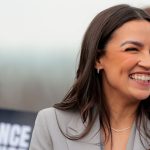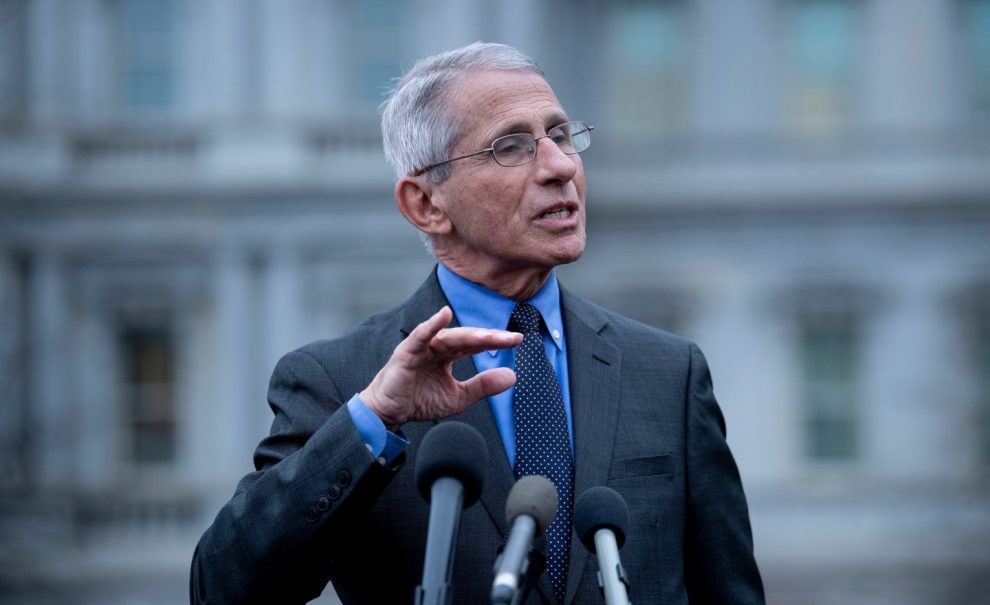Ashley Rindsberg convincingly traces Anthony Fauci’s response to the Covid 19 pandemic to the biodefense institutions created by George W. Bush and Dick Cheney following the 9/11 attacks. “To understand the rise of Fauci, and his legacy as he retires this year, we must return to the first months of the 2000s … Bush’s interest in biodefence and pandemic preparedness is frequently traced back to a 2004 book, The Great Influenza. The reality, however, is that the administration came to power with biological weapons and infectious disease very much top of mind … But if biodefence wasn’t already a priority for the Bush White House, that swiftly changed a week to the day after the 9/11 attacks, a mere eight months into Bush’s first term, when the United States suffered the most serious biological weapons attack in its history,” the 2001 anthrax attacks.
Soon after the terrorist attacks of 9/11, letters laced with anthrax began appearing in the U.S. mail. Five Americans were killed and 17 were sickened in what became the worst biological attacks in U.S. history. The ensuing investigation by the FBI and its partners—code-named “Amerithrax”—has been one of the largest and most complex in the history of law enforcement.
To this day doubts linger as to the identity of the perpetrator, but as Rindsberg notes there was no doubt in the minds of either Bush or Cheney that America’s biodefenses had to be bolstered and that Fauci was the man to lead the effort. “By 2003, the Bush administration was requesting $2 billion in annual budget for biodefence — a sum that, as the Los Angeles Times noted, exceeded the combined research budgets for breast cancer, lung cancer, stroke and tuberculosis. That year, Bush announced in his State of the Union address that he would propose a further $6 billion for the development and stockpiling of vaccines over the subsequent decade, in addition to baseline biodefence funding.The money was essential, but transforming a core element of America’s national strategic defence was as much about restructuring the governmental and human aspects of biodefence as it was funding them. In the case of research-based bioweapons preparedness, Cheney’s masterstroke was to remove the fragmented biodefence research programmes from various departments, institutes and centres, and place them under the aegis of a single institute: the National Institute of Allergy and Infectious Diseases (NIAID), led then, as now, by Anthony Fauci.”
But unlike Cold War nuclear warfare, whose doctrine of deterrence was well known even to the point of Hollywood fictionalization and whose institutions, notably the Strategic Air Command, were the subject of elaborate safeguards, the Fauci biodefense apparatus operated under the shroud of public health. “As far as NIAID (National Institute of Allergy and Infectious Diseases) was concerned, there was no meaningful administrative distinction between biodefence and scientific research. With the stroke of Cheney’s pen, all United States biodefence efforts, classified or unclassified, were placed under the aegis of Anthony Fauci. So important was this new command structure that a representative from the office of Scooter Libby, Cheney’s powerful chief of staff, was physically placed in NIAID headquarters in Washington.”
With this background in mind, it is easier to understand how Fauci’s destructive reaction to the Covid pandemic could have occurred. In order to successfully forestall the full impact of a devastating pandemic, Fauci would be incentivized to act before the pathogen could completely develop, in a kind of Launch on Warning, a scenario Cold War historians will recognize. “Under the strategy, a retaliatory strike is launched upon warning of enemy nuclear attack while its missiles are still in the air and before detonation occurs.” In the pandemic context, the authorities (meaning Fauci) had to unleash countermeasures costing trillions of dollars and untold excess mortality from disruption, to prevent in what was in their estimation a greater evil. Now the great weakness of the Launch on Warning strategy was the danger it might trigger a disproportionate response. History tells us this actually almost happened. “Eight minutes after warning screens showed 1,400 Soviet ICBMs spproaching North America, on 9 November 1979, NORAD concluded ‘attack was underway’”.
During the 2008 campaign, presidential hopefuls Hilary Clinton and Barack Obama debated the question: who was best suited to be suddenly awakened at 3 a.m. in the White House to make a tough call in a crisis. … According to the account of former Secretary of Defense Robert Gates, the call went to the national security advisor, Zbigniew Brzezinski, who was awakened in the very early morning hours to be told that hundreds of missiles were heading toward North America. Just before Brzezinski was about to call President Carter, the missile attack warning turned out to be a false alarm. It was one of those moments in Cold War history when top U.S. officials believed they were facing the ultimate decision.
In the Covid case, Anthony Fauci picked up the phone when the threat was inbound and no one dared question his judgment. “Fauci now had a virtual carte blanche to not merely approve but design and run the kind of research projects he sought — and could do so with no oversight structure above him,” is the way Rindsberg puts it. And he may have overreacted, events now suggested.
When challenged Fauci invoked the science. “It’s very dangerous, Chuck, because a lot of what you’re seeing as attacks on me quite frankly are attacks on science, because all of the things that I have spoken about consistently from the very beginning, have been fundamentally based on science,” Fauci told host Chuck Todd on MSNBC. Even when the Covid threat board was updated and the scientists signing the Great Barrington Declaration called for a more limited and targeted response, official science abetted by a compliant media would not be moved.
The Great Barrington Declaration – As infectious disease epidemiologists and public health scientists we have grave concerns about the damaging physical and mental health impacts of the prevailing COVID-19 policies, and recommend an approach we call Focused Protection.
Coming from both the left and right, and around the world, we have devoted our careers to protecting people. Current lockdown policies are producing devastating effects on short and long-term public health. The results (to name a few) include lower childhood vaccination rates, worsening cardiovascular disease outcomes, fewer cancer screenings and deteriorating mental health – leading to greater excess mortality in years to come, with the working class and younger members of society carrying the heaviest burden. Keeping students out of school is a grave injustice.
Keeping these measures in place until a vaccine is available will cause irreparable damage, with the underprivileged disproportionately harmed.
Fortunately, our understanding of the virus is growing. We know that vulnerability to death from COVID-19 is more than a thousand-fold higher in the old and infirm than the young. Indeed, for children, COVID-19 is less dangerous than many other harms, including influenza.
As immunity builds in the population, the risk of infection to all – including the vulnerable – falls. We know that all populations will eventually reach herd immunity – i.e. the point at which the rate of new infections is stable – and that this can be assisted by (but is not dependent upon) a vaccine. Our goal should therefore be to minimize mortality and social harm until we reach herd immunity.
As the WSJ put it. “In public, Anthony Fauci and Francis Collins urge Americans to ‘follow the science.’ In private, the two sainted public-health officials schemed to quash dissenting views from top scientists. That’s the troubling but fair conclusion from emails obtained recently via the Freedom of Information Act by the American Institute for Economic Research. The tale unfolded in October 2020 after the launch of the Great Barrington Declaration, a statement by Harvard’s Martin Kulldorff, Oxford’s Sunetra Gupta and Stanford’s Jay Bhattacharya against blanket pandemic lockdowns. They favored a policy of what they called ‘focused protection’ of high-risk populations such as the elderly or those with medical conditions. Thousands of scientists signed the declaration—if they were able to learn about it.”
But was too late. Fauci’s overwhelming response was en route.
Story cited here.
























